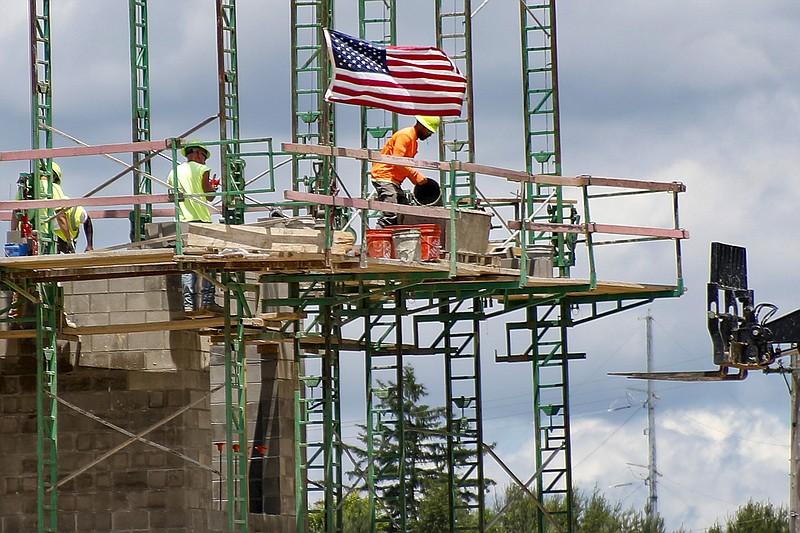WASHINGTON -- Americans' outlook on the national economy has improved somewhat from its lowest points during the early weeks of the coronavirus pandemic, but a new poll suggests Democrats and Republicans are living in alternate economic realities amid the sharpest recession in the nation's history.
Eighty-five percent of Democrats call economic conditions "poor," while 65% of Republicans describe them as "good" in a new survey conducted by The Associated Press-National Opinion Research Center's Center for Public Affairs Research.
[CORONAVIRUS: Click here for our complete coverage » arkansasonline.com/coronavirus]
This divide reflects the deep polarization ahead of the 2020 presidential election, as well as a series of indicators that point toward a weakened but recovering U.S. economy.
"The economy is in terrible shape and improving rapidly," said Harvard University professor Jason Furman, formerly the top economist in the Obama White House. "Depending on which of the two halves you're looking at, you're going to have a very different interpretation of where we are."
Americans can see reasons for hope as well as doubt. They face a host of uncertainties about the path of covid-19, the fate of small businesses with fewer customers and the status of additional government aid.
Overall, 63% of the country says the economy is in poor shape, down somewhat from the 70% who felt that way in May. The change was driven by increasingly optimistic Republicans, only 43% of whom described the economy as good a month ago. Two-thirds of Republicans, but just 29% of Democrats, expect improvement over the next year.
The survey finds that black Americans and Hispanics are more likely than white Americans to say someone in their household has lost a job or other income.
Overall, 66% of Hispanics and 53% of blacks say they've experienced some form of household income loss, including layoffs, unpaid time off and cuts in hours or pay. Forty-two percent of white Americans say the same. Thirty-four percent of Hispanics, 29% of blacks and 20% of whites said someone in their household has been laid off.
The poll finds signs that some of those layoffs are becoming permanent. Among all those who experienced a layoff in their household, 55% say the job definitely or probably will return -- and 8% say it already has. Still, 36% said the job will likely not come back, which is significantly higher than the 20% who said that in April.
The economy cratered in March and April as people sheltered in place in hopes of stopping the pandemic, and the unemployment rate spiked to at least 14.7%. Responses to government surveys suggested the true jobless rate may have been even higher. But it showed signs of reviving in May. Retail sales surged 17.7%, and 2.5 million jobs were added. The unemployment rate improved to 13.3%, a number that is still the second-highest reading in records going back to 1948.
Leah Avery, 54, lost her job driving a school bus in suburban Dallas. She said she checks her email daily to find out how schools will reopen. She applied for unemployment benefits a month ago, but the request has been under review.
"It's a struggle day by day for us to pay our bills, and I know others are going through the same thing," she said.
The job loss has only added to her stress. Her aunt died from covid-19, and she needs to take care of her elderly mother and her husband, who has dialysis appointments three days a week. It's a full-time job with no pay, she said.
"I just have these moments where it makes me cry," she said. "You don't know this day from the next day what is going to happen."
The nearly $3 trillion in approved federal aid has shielded many people from the pain of the downturn. About two-thirds of Americans still call their personal financial situations good.
The poll of 1,310 adults was conducted June 11-15 using a sample drawn from the National Opinion Research Center's probability-based AmeriSpeak panel, which is designed to be representative of the U.S. population. The margin of sampling error for all respondents is plus or minus 3.7 percentage points.


